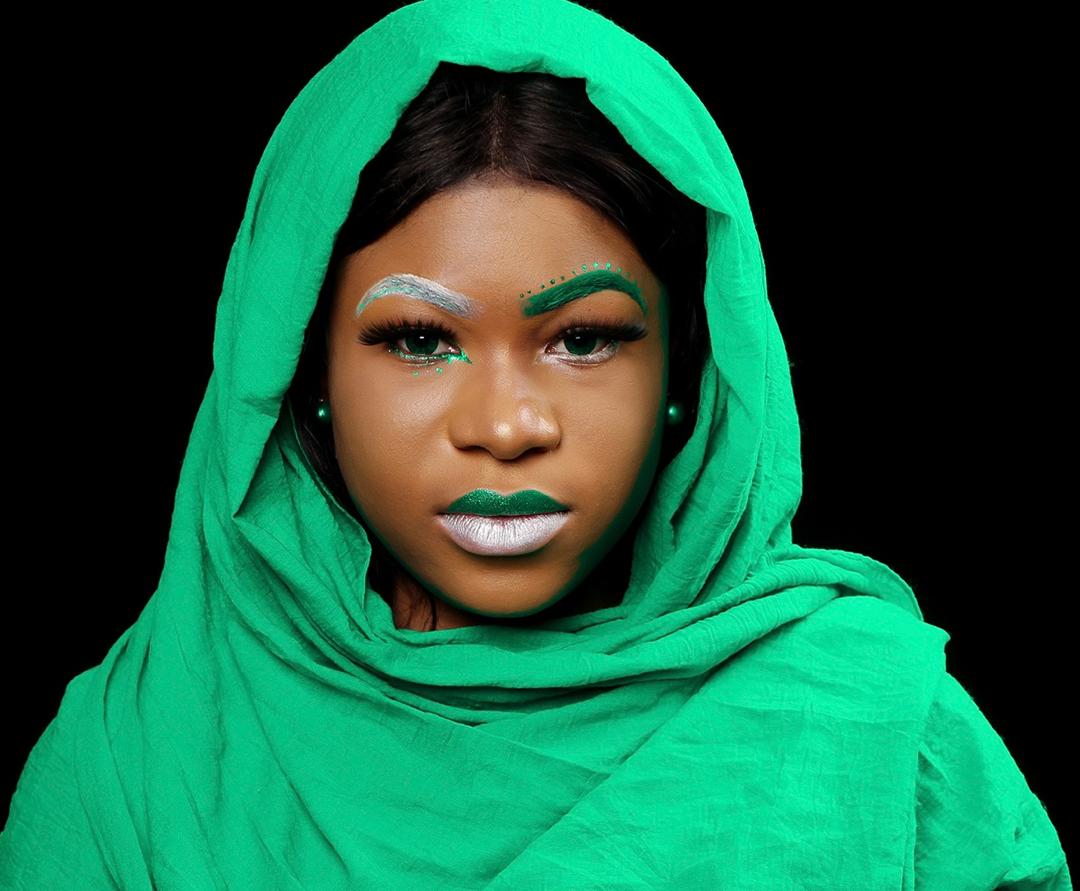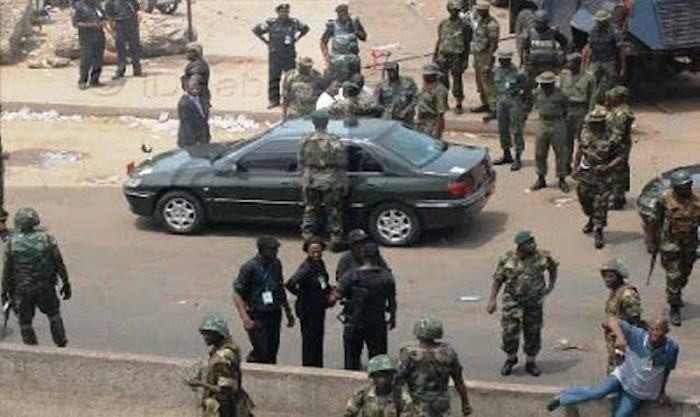By William Ikhianosimhe Orbih.
Before naming and condemning what is referred to in this piece as the unholy trinity of Nigeria’s democracy, it might help to begin with a brief overview of the mystery of the one Holy Trinity and briefly elucidate the concept of “unholy trinity.”
There is the one Holy Trinity. The Catechism of the Catholic Church No. 234 aptly describes the mystery of the Holy Trinity as the central mystery of Christian faith and life. “It is the mystery of God in himself. It is, therefore, the source of all the other mysteries of faith, the light that enlightens them.
It is the most fundamental and essential teaching in the “hierarchy of the truths of faith.” In other words, the mystery of the Holy Trinity is the mystery of mysteries, that is, the mystery upon which other mysteries rest.
What is this mystery?
It is the mystery of the Father, the Son, and the Holy Spirit, three persons, one God. Three distinct persons, yet perfectly united in nature, will, power and activity; equal in majesty and might, co-eternal and consubstantial.
It is the mystery of the Father who begets, the Son who is the only begotten of the Father, and the Holy Spirit who proceeds from the Father and from the Son. It is the mystery in which we move, live, and have our being. It is the mystery upon which our faith rests, our hope hangs, and our charity depends. It is the mystery of deep calling on deep in mutual intra-trinitarian glorification and of God in communion with us.
The mystery is holy and profound, incomprehensible to limited human intellect. It is the mystery that gives form to our Christian community and direction to Christian theology. This is the mystery we celebrate today, one week after the end of the holy season of Easter, and quite rightly, we do so most solemnly.
However, while there is one holy trinity, the concept “unholy trinity” has been used by people throughout history, mostly to show how three things can work together with the common interest of hindering human progress.

The most classical is found in the book of Revelation (Chapters 12-14), where the trio of Satan, the Antichrist, and the Beast are identified in their desperate ploy to ensure human damnation. The good news of the book of Revelations is that while Satan, the Antichrist, and the Beast (or Dragon) are portrayed as ferocious in their whims, they are defeated by the champions of the Lamb.
John Milton was the one who perhaps popularized the above when he made of Beelzebub, Lucifer, and Astaroth, an unholy trinity in his 1667 book Paradise Lost. In both the book of revelation and Milton’s magnificent poetry, this demonic trio can, in a sense, be contrasted with three persons of the trinity working in perfect unity for the salvation of humankind.
Although the mystery of the Holy Trinity is incomprehensible by its nature, it is understood to have been revealed for the all-around prosperity of humankind, known in Christianity as salvation.
The classical distinction between the “immanent” and “economic” trinity or “theology” and “economy” is to emphasize how while the revelation of the mystery of Holy Trinity does not exhaust the essence of God, it is never to be divulged from its integral link to human salvation.
Still, according to the CCC, “the whole history of salvation is identical with the history of the way and the means by which the one true God, Father, Son, and Holy Spirit, reveals himself to humans “and reconciles and unites with himself those who turn away from sin.”
Thus, while the Holy Trinity is pro human salvation, the unholy trinities are averse to human progress. This forms the point of departure from a discussion on holy and unholy trinities above and a crucial focus on Nigeria’s politics that now ensues.
When Aristotle famously asserted that “the human being is by nature a political animal,” he was not saying that humans are naturally, hopelessly, or even notoriously political; he was also talking about the importance of politics for collective human advancement. For Aristotle, therefore, “the form of government is best in which every man, whoever he is, can act best and live happily.”
While democracy and oligarchy may not be the perfect form of government, he argues that they might yet be good, provided officials know what democratic measures save and what measures destroy a democracy and what oligarchical measures save or destroy an oligarchy.
Following Aristotle’s argument and our elucidation on the concept of “unholy trinity,” we can identify some of the things that make Nigeria’s democracy very undemocratic and thus hinder the social advancement of Nigeria and Nigerians. The unholy trinity of Nigeria’s democracy today consists of the trio of injustice, mediocrity, and bigotry.

The problem with Nigeria, says Chinua Achebe in his 1983 book-length essay with the same title, is the failure of leadership. It is “the unwillingness or inability of its leaders to rise to the responsibility, to the challenge of personal example which are the hallmarks of true leadership.”
In his further elaboration of what he means by the failure of leadership and the Nigerian leadership style, Achebe identified social injustice, the cult of mediocrity, and ethnic bigotry as the most prominent traits of leadership in Nigeria. Not only are these true in the context of contemporary Nigeria politics, but they are also very much interrelated.
They work together in undermining Nigeria’s democracy, making it as unideal as a form of government can be. In this sense, they can be rightly referred to as an unholy trinity because, working together, they have managed to ensure that Nigeria’s democracy hinders the progress of most Nigerian citizens and makes it difficult for most Nigerians to find fulfillment and happiness.
The importance of justice to any human society cannot be overemphasized. “Without justice,” says Saint Augustine, “kingdoms are nothing but gangs of criminals on a large scale.” He was writing during the century of the decline of the Roman empire and trying to make sense of the deplorable situation the one great empire suddenly found itself.
The historical context traces to Emperor Constantine, the Roman Emperor, whose conversion to Christianity brought immense socio-political advantage to the Christian religion. From being a marginal and persecuted religion, Christianity became the religion of the Emperor. As Gerard O’Daly narrates, the fortune of the before then persecuted religion witnessed a dramatic change.
However, this gradual Christianization of the Roman Empire, beginning from the governing classes, was soon followed by attempts, both direct and indirect, at the repression of pagan worship. By the time of Augustine, Christianity had ascended the ladder of social importance while pagan worship though still alive, was fast declining.
One social implication of this was that when Rome’s fortune began to dwindle, it was only natural for many pagans to blame Christianity for the dwindling fortune of the great Roman Empire.
According to their argument, Christians are to blame for the neglect of the pagan gods who were behind the great fortunes of Rome and who would have protected it from the Barbarians. By implication, many pagans were advocating a return to the worship of the numerous gods of the empire as the only panacea to Rome’s dwindling fortune.
Saint Augustine disagreed vehemently, arguing instead that Rome’s decline only began when injustice and moral corruption had set in, and not because the worship of pagan gods was abolished.
Of course, Saint Augustine is right, and what he says of the Roman empire can easily apply to Nigeria. There is so much injustice in Nigeria today that the country is on the verge of imploding.
The incessant killing of innocent Nigerians. Human rights abuses are rife, and recourse to justice is hard. Workers and pensioners are owed, many are underpaid. Votes do not count. The list is endless. The number of secessionist agitators keeps increasing. So many groups want out of what Awolowo calls a geographical expression.
For Achebe, the injustice of Nigeria’s polity is chiefly embodied by Nigerian leaders, and the unjustness of Nigerian leaders is not just manifested in economic corruption but also in what he described as the cult of mediocrity and ethnic bigotry. Mediocrity is the bane of social progress.
It occasions the suppression of competence and obliterates the constant aspiration for improvement that powers progress and development. According to Achebe, “Nigerians are what they are only because their leaders are not what they should be.” Nigeria leaders, he argues, are not good patriots.
Otherwise, they will demand the highest standard for their country and accept nothing but the best for all the people they lead. On the contrary, the best of Nigeria leaders are often nothing but bigots invested with sectarian interests.
And precisely because Nigerian leaders are not good patriots, many Nigerians are not patriotic. Usually, too, mediocrity goes hand in hand with bigotry, and the incompetence of a member of our tribe is in practice preferred to the competence of someone who is not of our tribe.
Of course, for Nigeria to move past its present travails, all hands must be on deck in the eradication of injustice, bigotry, and mediocrity. Justice must be brought back and made accessible to the most vulnerable of society. Nigerian leaders must recognize that true and meaningful progress remains impossible provided mediocrity and bigotry continue to hold sway.
Most crucially, the masses must realize that the destiny of Nigeria lies in their hands. By eschewing injustice, rejecting mediocrity, and resisting bigotry wherever it is manifested, we can reclaim our country from the damnation it is presently headed.
*First published in the Good Shepherd Newspaper.



